Welcome to Psychologically Speaking!
I’m diving into the fascinating gap between intentions and actions—a liminal space where plans meet spontaneity—and exploring what it reveals about our identity. I’m excited to delve into accountability as a helping hand between intention and making things happen. What’s deeply satisfying about accountability, for me, is how it fits into the fabric of our social spaces and networks.
In today’s episode, we’re dipping into the psychological pond of Self-Determination Theory. I’ll be sharing my own experience of goal setting, which unfolded over several months and resulted in one of my greatest experiences and achievements. We’ll explore how accountability floated along the journey in both planned and unplanned ways. Finally, we’ll conclude with a reflection exercise for you to try, helping you discover the type of accountability that works best for you.
So, let’s start by skimming the surface of this metaphorical pond of motivation: what drives us to get ahead and get things done, and why is this important for understanding accountability?
One of the most popular and widely applicable theories of motivation is Self-Determination Theory. It’s rooted in the idea that humans are living, evolving beings who grow and learn through new experiences. But none of this happens in isolation—support from others and our cultural environment plays a crucial role in shaping motivation, like the ecosystem of a pond.
Self-Determination Theory is made up of six theoretical areas—let’s call them the giant lily pads of our pond. Today, we’re focusing on two of these: basic psychological needs and relationship motivation. These areas are key when we think about accountability because they highlight the interconnectedness of social context and goal achievement.
Basic Psychological Needs
Self-Determination Theory identifies three core needs: autonomy, competence, and relatedness. Whether you’re running a business or working for someone else, these might look like:
Autonomy: Having the freedom to make decisions that impact your work or goals.
Competence: Possessing the skills—or working toward developing them—to achieve your objectives.
Relatedness: Feeling connected, whether through in-person colleagues or virtual networks.
Relationship Motivation
This area focuses on close relationships and their impact, not only on belonging but on the circumstances that can undermine good relationships. Interestingly, relationship motivation coexists with autonomy—one person supporting another’s space and boundaries is an essential balance.
Most of us have experienced forms of accountability that don’t work. Too much accountability can leave you overwhelmed and gasping for air, while too little can make you feel like you’re drifting away from your goals. Understanding how and why accountability works is key, here’s my reflection on what worked for me.
On Christmas Eve, my brilliant friend—someone I’ve run long distances with—WhatsApped me a link to the Thames Path Challenge, accompanied by the tempting words: “Actual next year goal?” For context, the last time we ran a long distance together was in 2019 across the chalky South Downs—a double marathon distance in a barely lucid state. Fun, despite the blisters!
[For clarity, this photo was taken at the ‘fake end’ of the Race to the Stones ultra. IFYKYK]
Since then, I’ve barely managed to run 5K consistently. But giddy with Christmas spirit (Santa loves a sherry in our house), I replied, “Can I do it with you?” And “We’re doing the 100K, right?”
At 4:40 a.m. on Christmas Day, I found myself awake, wondering how I would train for an ultra while juggling motivation and rediscovering my joy for running. I started analysing the evidence from my previous efforts. In 2024, my average monthly mileage was a paltry 8 miles (thanks to a back injury), although I managed closer to 15 miles in good months. Compare that to 2018, the year of my first ultra, when I averaged 80 miles per month!
I almost messaged my friend to decline but instead typed, “Okay. I’ve done this before, and I can do it again.” What I meant was: I’ve started from scratch before.
Reflecting on my running journey, I now see that success wasn’t just about me. It took a village—and a dose of privilege. I had financial stability, childcare, and good health (as much as asthma allows). I also had an abundance of supportive relationships.
In September 2017, the same friend challenged me to run 30 miles in 30 days to support her London Marathon fundraising. Sharing sweaty post-run selfies and tagging her on WhatsApp kept me accountable.
Her expertise in long-distance running and her enthusiasm met my psychological need for legitimacy. This small, achievable goal snowballed: I became more consistent and eventually ran my first ultra in June 2018.
Without realising it, the short-term target of the 30 in 30 set a performance monitoring environment, and my friend and I naturally used social presence (Instagram/whatsaap) to strengthen and facilitate that bond. We’ve probably physically run together fewer than 20 times, but virtually we were running companions. We’d post a video to each other before our morning runs, then check in again after our runs
Accountability came not just from my friend but from other sources too. I ran with my dog, joined Parkrun, and participated in virtual running communities. My husband supported me emotionally
I cried to my husband when my legs ached, he’d run a cold bath (I’ve not missed those!) I moaned when my long runs felt like they’d never end, when I got drenched or fell over in the ice (many times I might add).
[June 2018, Leila vs cyclist on a tow path]
He cheered me when I finished last in a local 20-mile run, possibly one of the toughest runs I’ve done mentally is knowing I would finish last, at that point in time it was a race against me and my mindset.
Training for a spring marathon and summer ultra is such an unglamorous affair, rain, snow vertical rain hail, mud and mini heatwaves, no run is ever the same. My husband would pick me up miles from the house, he probably rolled his eyes when I decided to run commute down an isolated lane to a train station to get extra miles in, but he accepted the madness of long running and my need to do this extraordinary thing around work and a toddler.
Under Self-Determination Theory and Relationship Motivation this need for autonomy in close relationships looks like one person supporting another’s space and boundaries.
All these things are important contextually when thinking about goal achievement and accountability.
Our Social Brain runs on endorphins
I was fortunate enough to attend a lecture by the experimental psychologist Robin Dunbar a few years ago, Robins work centres on the processes that underpins social bonding under the social brain hypothesis, his book called Friends is an accessible read all about the quality of our relationships and the impact on our health, he also theorises that we can maintain about 150 friendships. I’m interested in Robin’s work this because entrepreneurial networks, how they work, how we sustain connections and how they create accountability and opportunities is at the heart of my psychology research.
In his paper from 2022 he looks at the subject of virtual touch, in the introduction he talks about social grooming and the fact that despite humans having lost most of their body hair, grooming through touch, stroke etc is still an important for us, it elevates endorphins leading to a sense of emotional closeness and is still an important mechanism in our social relationships. He goes on to explore the changes and expansion of our social networks and the ways humans have found ways to trigger the endorphin system without physical touch, such as through laughter, singing, dancing, and storytelling.
I’ve often wondered how I coped with the physical exertion and pain that came with ultra training, virtual touch might have a part to play in this. Findings show that synchronised activity (so virtual running, dancing and even singing!) encourages bonding more than unsynchronised activity and can lead to higher pain thresholds, Dunbar links this back to the role of endorphins, using the example of a runner’s high.
I’m a way off my running high of 2019, so it’s been useful to reflect on what was going on back then, the support networks I had in place and relationships that sustained me and provided those three basic needs, I’m also reflection that it’s been useful especially as I’m reviewing what I need to succeed in my PhD journey.
I had autonomy to pursue my goal in a way that worked for me, I didn’t follow someone else’s rigid training plan, although I learned from what others had done.
I squeezed in runs here and there, I failed a lot, I cried, but I chased those endorphins.
I developed new competence, I vividly remember one run where everything clicked and when I got home, I had kept to a consistent pace for every mile I’d run, this took months of practice and it wasn’t a visible gradual process, I was rubbish at pacing for months and then I wasn’t.
And finally, a sense of belonging, I felt like a runner at every step of the journey, even when I came last. There is something very wonderful about the relatedness of the running community (or at least the people I hung around with virtually) in that you are just accepted for putting one foot in front of the other.
Let’s return to the metaphorical pond of motivation. Each of us exists in our own unique ecosystem, surrounded by the lily pads of Basic Needs, and Relationship Motivation, the countless social connections that ripple outward. Like the surface tension of water, accountability is the invisible force holding everything together. It keeps us buoyant, helps us navigate, and provides the structure we need to move forward.
So, now it’s your turn to reflect. Who is in your accountability pond? Who are the frogs on your lily pads—the friends, mentors, or communities helping you float? And how are you contributing to their ecosystems in return?
Psychologically speaking, I suspect that when you look back at some of your biggest achievements and successes you will find these accountability cues, Social Presence, Expectations, Performance monitoring, Legitimacy and Bonds of friendship, are all the ingredients you need.
By reflecting on these questions, you can begin to see the ways in which your accountability team strengthens your growth, whether you’re reaching for your goals, running a marathon, or simply finding joy in the process.
Thanks for listening! If you enjoyed this episode, please rate, review, and share it. And if you’re looking for one-on-one coaching to build your accountability team, I have three slots available—get in touch!
p.s to my dear friend who I know will be listening, I’ve not entered the Thames Path yet, but I am running further than this time last year. You’ll also be amused to know I’ve had my first injury of the year after tripping on the ice – I think we can safely say that my knees are going to be permanently bruised this year!
[January 2025, Leila vs Ice]






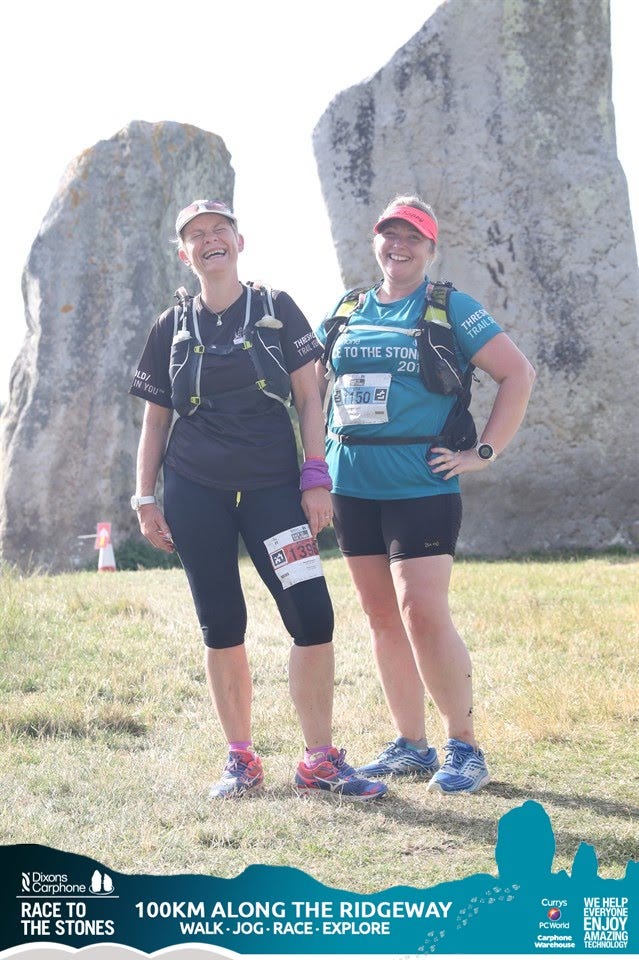

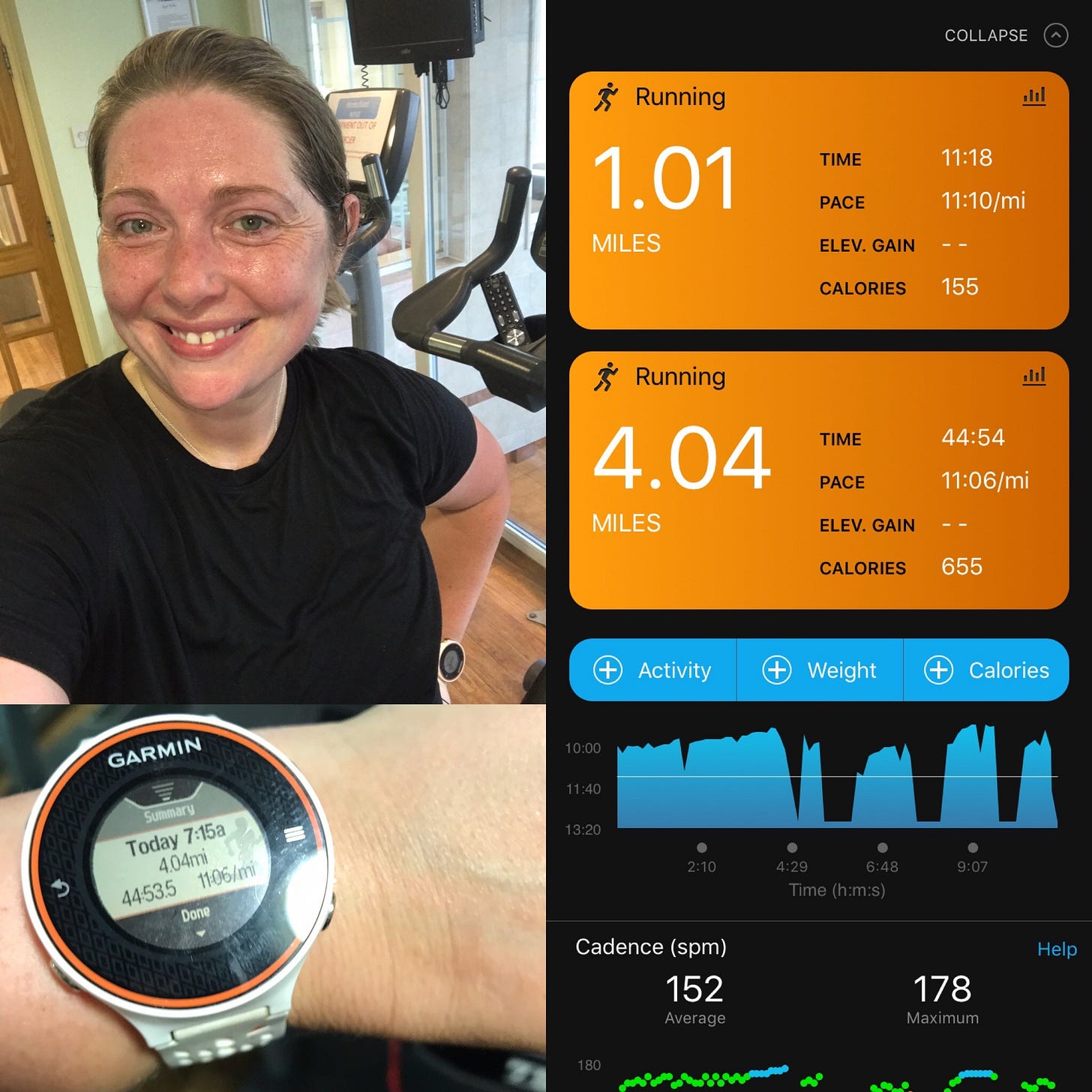
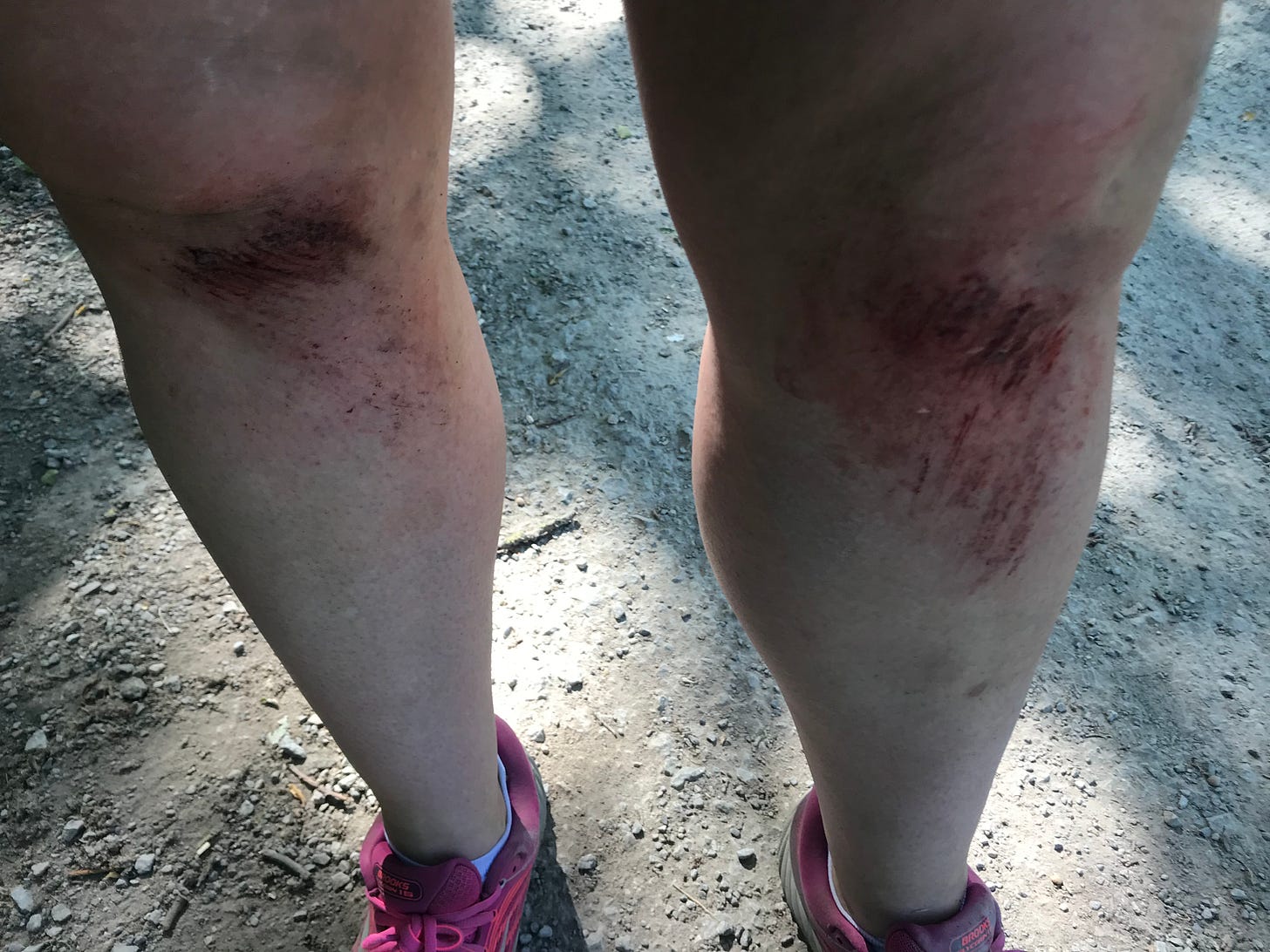

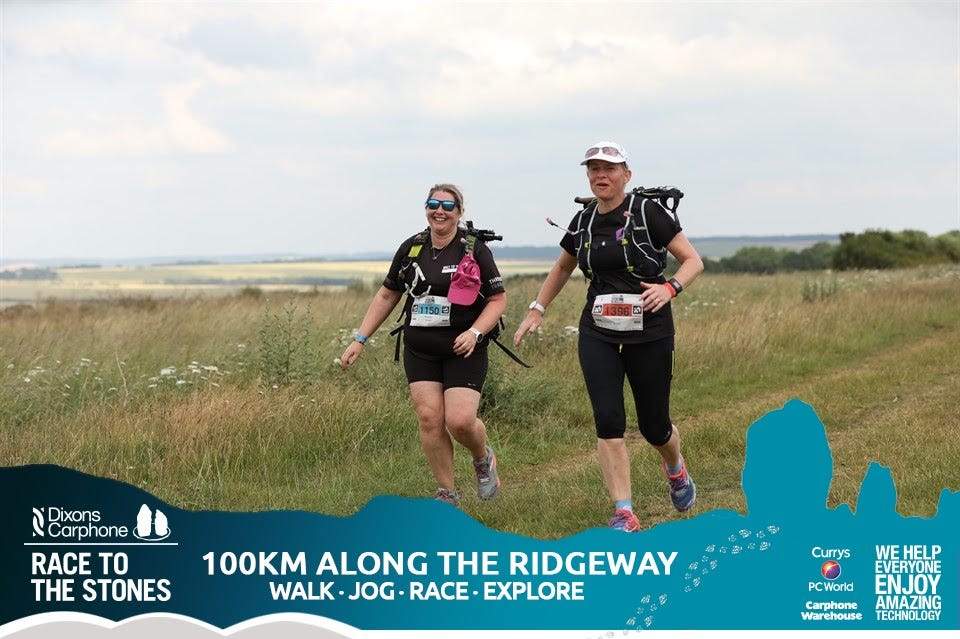
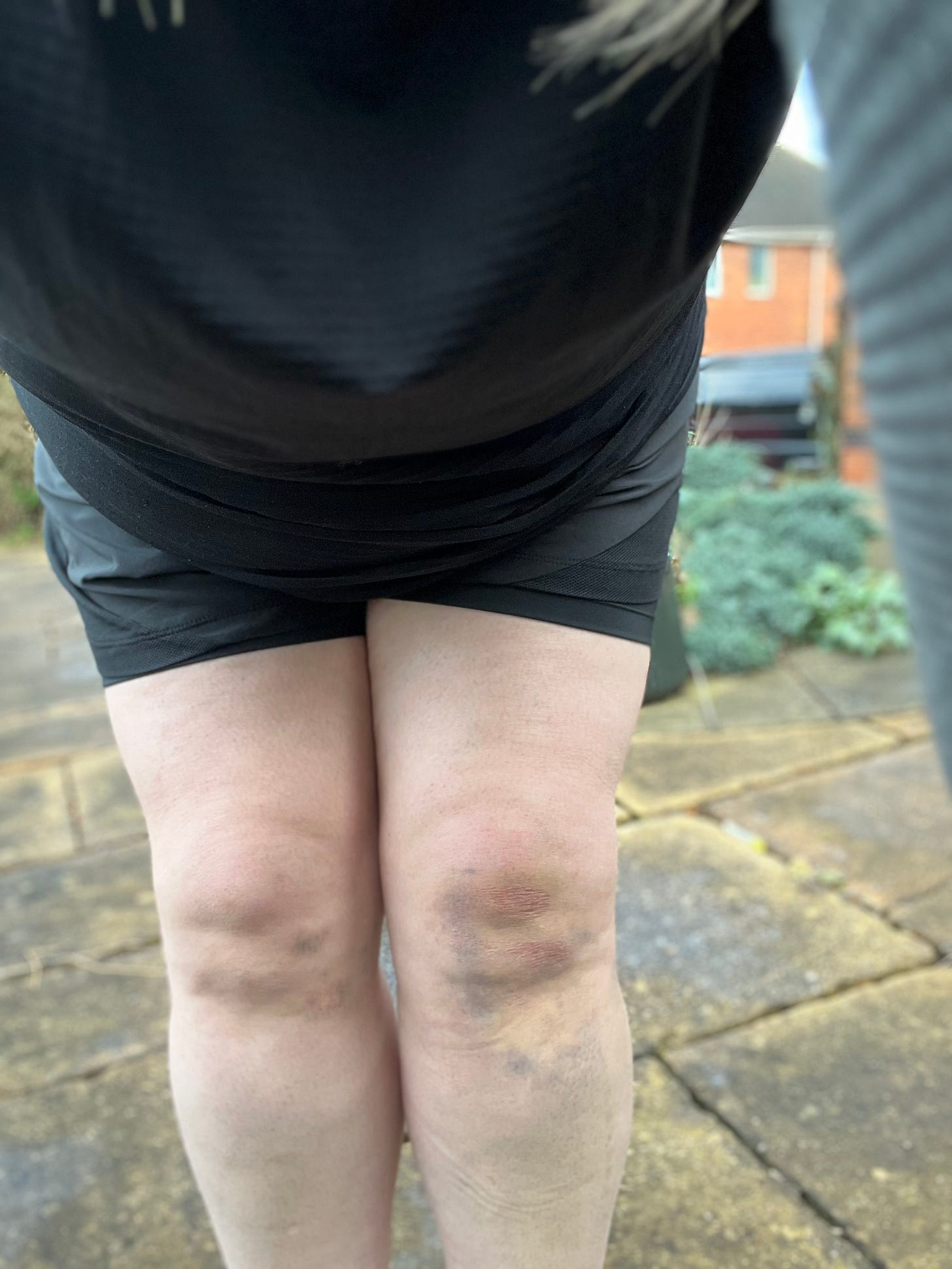








Share this post